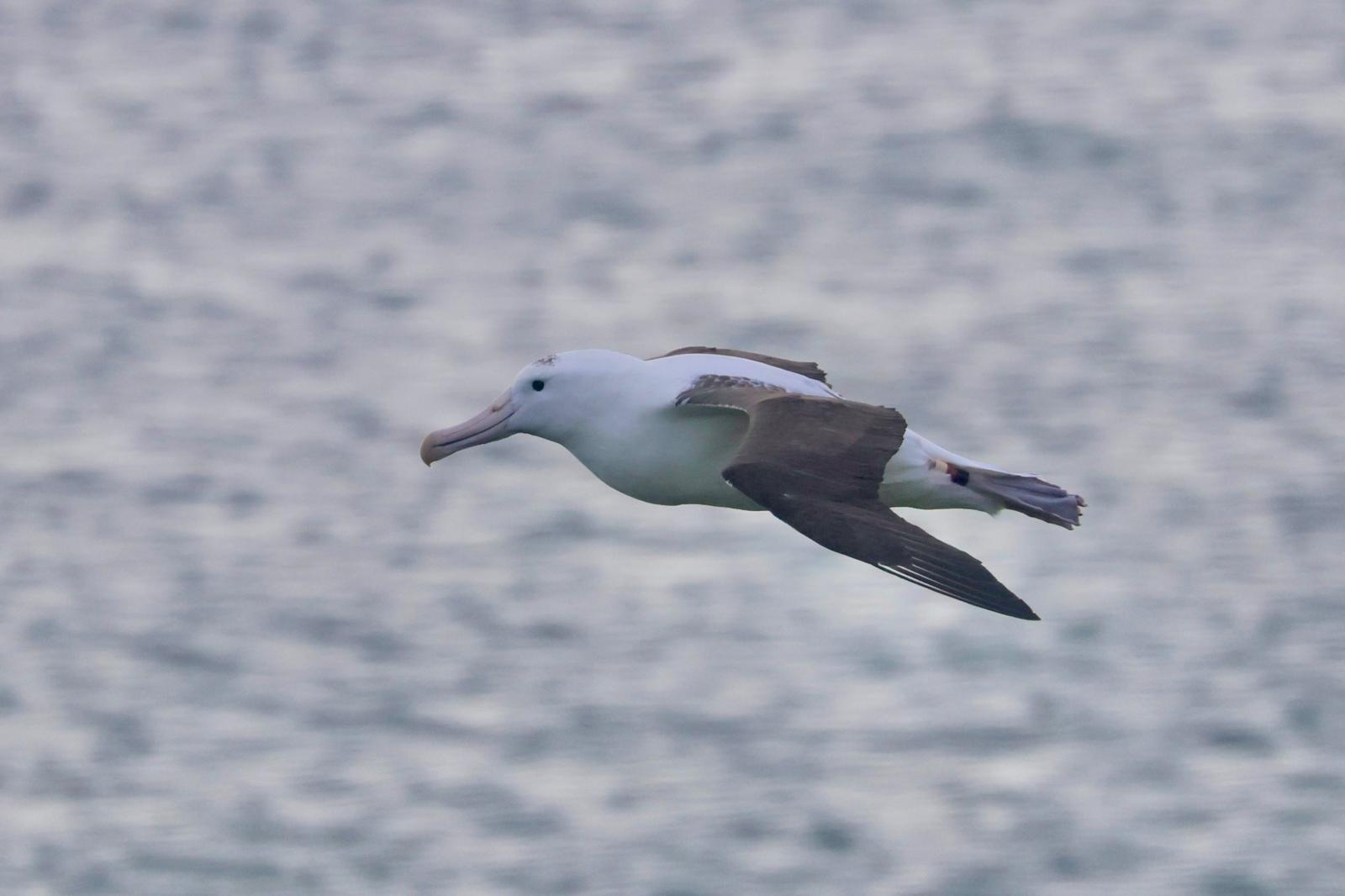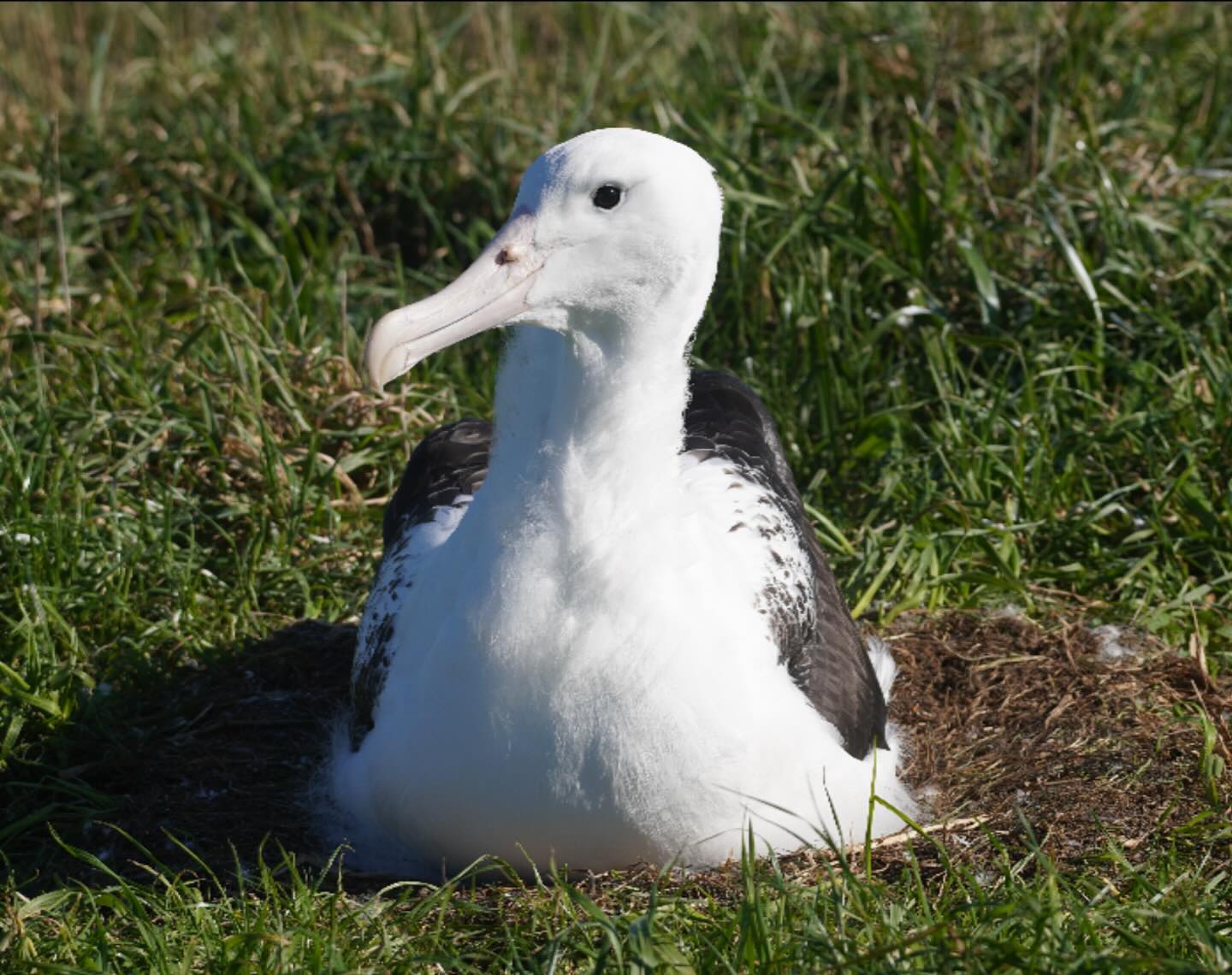
YRK in flight over Pukekura/Taiaroa Head, 17 September 2024, photograph by Zach Barford
Today, the bells started ringing in Dunedin at 13h00 NZST on New Zealand’s South Island. In what has become an annual tradition, the city’s bells sound out from churches and schools to mark the return of a new season’s cohort of the biennial breeding Northern Royal Albatrosses Diomedea sanfordi in the nearby mainland colony at Pukekura/Taiaroa Head.
The first returnee of the Endangered albatross was sighted and photographed in flight around the colony headland on 17 September by colony guide Zach Barford. Identified by its yellow, red and black leg-mounted colour bands, “YRK”, a female, is described by The Royal Albatross Centre’s Facebook page as a “rather well-known bird which had previously featured as a former Royal Cam parent who raised [chicks] Atawhai in 2020 and Lilibet in 2022, both with her mate OGK [orange, green, black] who sadly went missing in June 2022. Having hatched in 1994 YRK is currently 30 years old and has successfully raised many chicks so far in her lifetime.”
Watch a video of the bell ringing within the centre today here. The 2022 ceremony was also covred by ACAP Latest News.

The 2024 Royal Cam chick in August, photograph by Laura Findlay
Other recent news from the colony is that the chick from the 2024 Royal Cam pair fledged on 23 September. It hatched on 23 January 2024 and so left the headland exactly eight months later (click here). The fledging has not as yet received its name, but you can still vote for one of 10 short-listed names (click here).
John Cooper, Emeritus Information Officer, Agreement on the Conservation of Albatrosses and Petrels, 24 September 2024

 English
English  Français
Français  Español
Español